Pssst! FTC Disclosure: Embedded in each book title is an affiliate link and if you click on it (and purchase a book) I will receive a teeny-tiny commission.
Feel free to do that…
Everybody’s a critic.
I’m not sure about everybody, but I most certainly am.
It’s that time of year again, where I do “This Book, That Book,” where I divulge whether or not you should read this book or that book.
Or if you should read none of the above.
I decided that 2023 will be the year of nonstop reading. Despite not meeting my reading goal of 25 books last year, I set a higher goal this year of 30 books and blew that out of the water with a whopping 43.
I am overly-proud of myself for this and would now like to tell you all what I thought of each and everyone of them.
Let’s get started…
The Girls by Emma Cline– is the most original coming of age story that I’ve ever encountered seeing as it is about a teenage girl who joins a cult. The novel speaks to the universality of teen angst since, at its core, it is a story about a teenage girl dealing with her parents’ respective partners in the wake of their divorce, the disillusionment of a friendship with a former best friend, and her impending move to boarding school at the end of the summer. The main character gets indoctrinated into a cult when she gets positive attention and a reprieve from her teenage feelings of inadequacy. I’d heard that the book does a beautiful job of describing the bodies of the young girls and it truly does. The book describes the pubescent bodies of the girls and how they interact with them, devoid of any of the nauseating men-writing-women lines that we’ve all come to recognize and make fun of on the internet (her breasts, which often stood proudly, were now withdrawn and sullen blah, blah, blah). Told from a distinctly female point of view, the story wraps in ideas of girlhood, female puberty, female sexuality, and the self-doubt that comes with being a girl. There is the author’s love affair with sentence fragments and one-sentence-long metaphors, making it at times overwritten, but with inventive verbs and adjectives to describe everyday sensations.
The Island by Adrian McKinty– was the definition of a page-turner, brutally keeping you guessing and on the edge of your seat in every scene. It was a less experiential book than I would have liked; they’re stuck on an island off the coast of Australia in a kill-or-be-killed scenario. I wanted to read about the salty sweat dripping off them, stinging the scratches on their bodies, or their sizzling sunburns that are boring into their shoulder blades (those are not examples of lines from the book. Those are examples of the type of lines that I wish were in the book). If you like The Hunger Games or The Most Dangerous Game then this is the type of novel for you.
The Wife Upstairs by Rachel Hawkins– is a modern-day retelling of Jane Eyre and, I am not going to lie, I did not see the plot twist coming. I spent much of the novel confused as to why the author was revealing the information that she was, only to be blindsided when the story went in a completely different direction. Hawkins pulls it off extremely well, making the reader think something entirely different has taken place. She also captures modern-day southern living so well that it might as well have taken place in my hometown.
The Silent Patient by Alex Michaelides– is a psychological thriller told from the perspective of a psychologist as he works with a patient who shot her husband and stopped speaking for several years. The pacing at the beginning of the novel is significantly slow, forcing the reader to get 60 pages into the story before your interest is truly piqued. The ending, however, will take you completely by surprise, scrambling your brain, and forcing you to either hate the book or love it. For my part, I’ve decided that I love it. The novel plays with perspectives and timelines, making for a juicy plot twist that shouldn’t work but somehow does. With the way that people were obsessing over this novel, I was expecting smooth, lyrical writing, but found that the language was regular and accessible, and that is not wholly a bad thing. Between the allusions to Greek mythology, focus on art, and central theme of human psychology, The Silent Patient seems like the type of novel that you’d read when you want to look smart, yet surprisingly it manages to avoid being obnoxious and pretentious, with all of these elements working together.
McGlue by Ottessa Moshfegh– Is intentionally very confusing. It’s written from the perspective of a blackout drunk with a massive head injury as he awaits trial for the murder of his best friend in 1851. The writing sobers up with the character, going from choppy writing to more articulate, and yet the story is a mass confusion from start to finish. Given the time period of the story, the novella is very liberal with its use of slurs. Nearly the entire story takes place on a ship as the narrator is forced to travel around. It is definitely a very different type of novel and you should absolutely read it if you’re in want of a change of pace.

I’m Glad My Mom Died by Jennette McCurdy– (TW: eating disorders and sexual abuse) I read I’m Glad My Mom Died by Jennette McCurdy and I too am glad that her mom died. After forcing Jennette into child-acting at the age of six, her mothers also forces her into calorie-restriction, while abusing her into adulthood. This was a serious bloodletting from Jennette, making it no surprise that she managed to gain the respect of so many. At times it was hard to read, given its subject matter, but she writes in such a compelling way that it is equally hard not to continue. This narrative vastly improved my understanding of eating disorders, dispelling all kinds of misconceptions I’d previously had. Overall, it is a harrowing survivor’s story. Many have stated that this memoir is nothing short of culturally important because it not only tells her story, but the story of what happens to talented young girls in the industry, almost as a rule, and I do not dare to disagree. One thing is for sure: Jennette McCurdy was and remains goated for this book.
Outer Dark by Cormac McCarthy– This was a book read for class. It was grotesque, distasteful, and, yes, very dark. Initially, it committed all of my literary turnoffs: no quotation marks, intentionally-ambiguous opening pages, and distractingly folksy dialogue. In order: the lack of quotation marks means you get mid-sentence before realizing that what you’re reading is dialogue, forcing you to reread and reconceptualize the line that you already read. Side note: you are not quirky or moody if you as a writer exclude quotation marks from your work. You’re just pretentious. The ambiguity in the beginning is clearly there for dramatic effect but resulted in my immense confusion. Finally, the Appalachian jargon that is laden throughout, which has been hailed as being dead-on-balls accurate for the region and era, just annoys me, (my knee jerk reaction is to say that unless your name is Flannery O’Connor or Zora Neale Hurston, please don’t bother) but I can live with this last one. I therefore wanted to come on here and completely roast this novel, but McCarthy had an incredible ability to describe a scene and how things appear. He won me over, unfortunately. *Also super liberal with its slurs given its time period. (And RIP Cormac McCarthy).
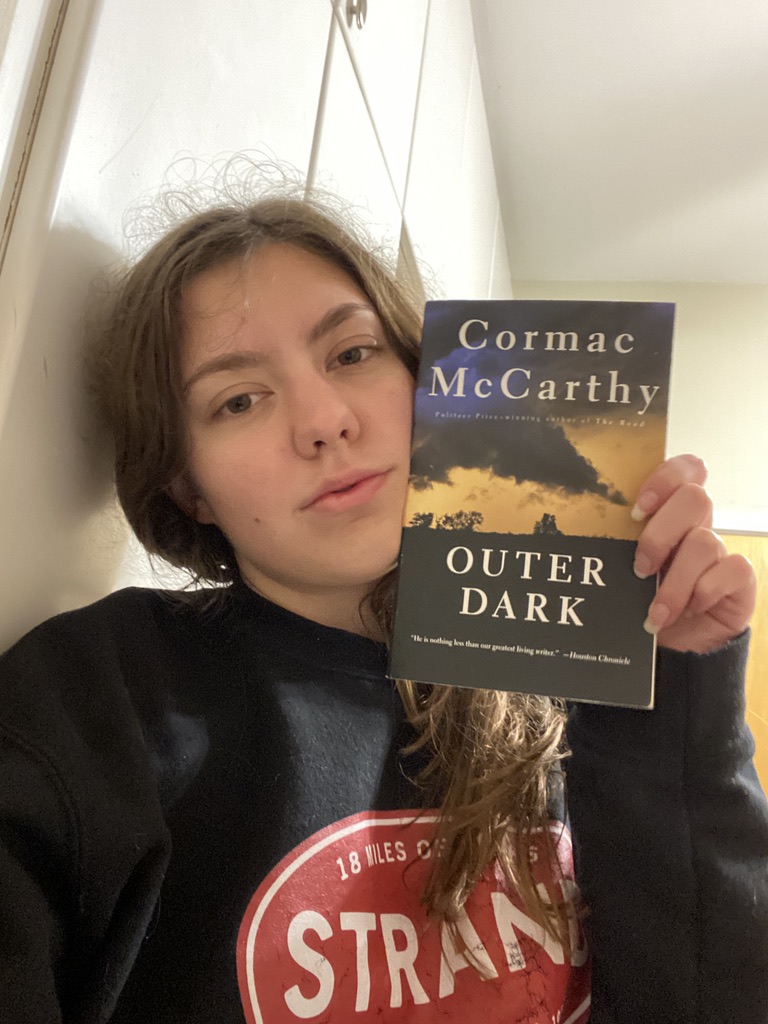
Crying in H Mart by Michelle Zauner– is the first book that made me both emotional and hungry at the same time. In a truly unique portrait of grief, Michelle Zauner, the lead singer of Japanese Breakfast, relives her relationship with her dying mother through food. In doing so, she describes her Korean upbringing in the Midwest, her biracial identity, the ugliness of her relationship with her father, and the strained one she had with her mother. The descriptions of food will make your mouth water. I was expecting to give my compliments to the person who ghosted it, but upon discovering that Michelle Zauner majored in creative writing, I knew that the fluid descriptions and smooth flow of the piece came directly from her. I promise I did not do this on purpose, but I read this book during a time in which there seemed to be a lot of death going around. I started reading this book around the time of my grandfather’s funeral, at the end of which, I went home with my parents and was with them when a close family friend died. When I returned to school a week later, someone else I know lost their mother and an in-law within days of each other. This book, therefore, was a comfort, mirroring all of the thoughts that were occupying my brain waves at the time, as I sent and received sad emails explaining what we’ve been going through with the recent deaths in our lives. I am now ready to drop the needle on some Japanese Breakfast.
The Vegetarian by Han Kang– I’ve often told my vegetarian friends that while I love them and respect them, I love red meat so much that I would probably be a cannibal before I was a vegetarian. This book seemingly confirmed that feeling for me. After giving up meat because of a dream she had, Yeong-hye starts to spiral, to the bafflement of those around her, and loses a significant amount of weight. There is honestly so much to say about this novel about the theme of resistance from the protagonist, the violence that she experiences, and what it means to be truly free. I love the female perspective from Han Kang about how the main character is sexualized by the men in her life. It can be pretty heartbreaking at times. Also, and this is neither here nor there, but Yeong-hye is not a vegetarian; she is a vegan.

Detransition, Baby by Torrey Peters– Is about a group comprised of a transgender woman, a cisgender woman, and a detransitioned man, who aim to have a baby together. It takes the story a while to warm up but once it does, it is so, so good. The story is third person omniscient, dipping into the perspective of every character it encounters, and inconceivably manages to tell flashbacks inside of flashbacks. It works well because Peters writes in such a fluid, confident way that makes you feel as though you understand the breadth and width of such nuanced complexities even when you are otherwise in the tall grass. In many ways, there are not very many plot points that take place. It is a real “no plot, just vibes” type of story, but one that keeps you entertained and engrossed throughout. The story itself can be a bit agonizing to read at times, sucking you into the lives of these characters, only to break your heart along and along, but I am convinced that everyone should read this book.
Found Audio by N.J. Campbell– A very strange, mind-bending novella that makes you question what is reality and what is merely but a dream. Found Audio is perhaps the best example of metafiction I have ever encountered, being a story within a story, relayed by someone who is telling a story. Needless to say, there are layers here and you find yourself asking what the motivations of the characters are, as well as, of course, what is going on. If you ever want to read something a little off the beaten path, this might be the perfect book for you.
Sam by Allegra Goodman– I devoured this book in a few hours, not just because it has simple writing that you can easily parse, (short sentences in passive voice that border on fragments) but because it is so compelling. Sam is a regular girl, devoid of any precocity aside from her ability to climb well. From there, she goes on to be a competitive climber as the singular thread throughout her adolescence and girlhood. Sam is a regular girl with a regular name and a regular life; her relatability speaks for itself. The story begins when Sam is 7 and ends when she is 19, achieved through the surprisingly steady pace that Goodman maintains throughout. Goodman does not go into detail. You spend the entire novel unsure of what any of the characters look like with only minor glimpses into their motivations. After breaking your heart little by little, forcing you to shout “get up!” to your copy of the book as the protagonist fails to move on with her life at times, the book circles for a landing at a good spot, ends on a high note, and fills you up with hope.
My Last Innocent Year by Daisy Alpert Florin– Despite its tawdry-sounding title, the novel is about a young woman who experiences numerous violations to her person throughout the span of a year. Set against the backdrop of the Bill Clinton-Monica Lewinksy scandal, the novel draws parallels between the main character’s affair with a married superior at age 21 and Lewinksy’s. There are sneaky references to The Age of Innocence and other nods to the novel’s theme of ending youth. The story felt true to my life, as it takes place during the female protagonist’s final semester at a small, elite, liberal arts college in the Northeast where she studies creative writing. As she apartment hunts, worries about rent, applies to numerous writing gigs, and attends her graduation, this novel told the story of what I was going through at the time (minus the trauma).
My Dark Vanessa by Kate Elizabeth Russell– I’m a few years late to the My Dark Vanessa discord. This was a brutal read, but, oh, so worth it. It will leave you grossed out and sad, in sympathy with the main character as she justifies and compartmentalizes her experiences with a predator. It is sharply written, plumbing the depths of the behavior of a survivor with a satisfying enough of an ending that puts a sad smile on your face. Beyond its commentary on the Me Too Movement, the book does so many things well by giving us a complicated female protagonist who needs, receives, and benefits from therapy. I hate to refer to a book as being important and of-the-moment, since it makes it sound like a gimmicky cash grab on the part of the writer when in reality this book not only captures the anxiety and the hysteria of the moment, but also points out what ironically, and horrifyingly, gets lost when discussing survivors’ stories: the story of the survivor themself.
The Poet X by Elizabeth Acevedo– Should be required YA reading for everyone. I blazed through this book. Each page is a blank verse poem, so it is an incredibly quick read. She covers her character’s relationship towards religion, a tricky relationship with her mother, her relationship with her maturing body, and her burgeoning love of poetry. Due to my personal preference for prose over poetry, I would have preferred to have read this story as a regular novel and not a novel in verse, but I still enjoyed the story and was impressed by her ability to write a novel in verse.
Dykette by Jenny Fran Davis– I read a review of this book that said “this book would kill a straight person.” It’s hard not to see why. There is much about pronouns, a competition amongst white Americans over who has the bigger connection to Europe, and an obsession with Chloe Sevigny. Given the cover image of a naked woman spooning a seemingly dead cardinal, I had high hopes for this book. It falls into that subgenre of literary fiction where the novel is about a relationship, but isn’t at all romantic. Two people are in a relationship going back and forth, arguing pretty often, being passive aggressive, noticing things about the other person, arguing some more about it, and then apologizing to one another as they continue their relationship and I’m just sitting here thinking to myself, “wow, these two people shouldn’t be dating.” If you like Sally Rooney’s writing then you will like this.
My Body by Emily Ratajkowski– Is a great memoir about the commodification of women’s bodies and the politics behind a woman using her body to achieve fame. When is she degrading herself and when is she empowering herself? When is it okay to complain about the way that others view your body when you’re the one showing it off? Ratajkowski discusses her career as a model, taking us through the Blurred Lines music video for which she became famous, her early memories of her body and beauty, her own experiences with her sexuality before it was used by others, and her experience delivering her baby. This series of essays explores ideas of ownership, what it means to be a muse, and what it means when your image is owned by others. This is not a sleazy book about the body of a sports illustrated model. You have to bring your mind to Ratajkowski’s body. Ratajkowski writes with such clarity, but I felt that there were a few missed opportunities. Given that the memoir is all about her body, she could have opened with a description of it, giving insight into how she views it. Likewise, she does not go into the changes her body undergoes when she gets pregnant, but overall, I believe that this book achieves exactly what it sets out to do. Everyone should read this book in order to understand the feelings of growing up as a girl and the importance of feeling empowered in your own body.
The Last Wolf by Lazlo Krasznahorkai– I have no idea what to say about The Last Wolf, except that it was a 70-page one sentence long work in translation about a man pretending to be something that he is not while relaying the story to a bartender. This is not the type of story that I would read for my own enjoyment (this was yet another book for class) but that is not to say that it is a bad book or that it is poorly written. It is, however, incredibly strange, and not for the fiction-reading-faint of heart. I recommend taking an edible and then conquering this book.

Animal by Lisa Taddeo– This is a fantastic book, albeit a little predictable. It was obvious to me who she was addressing the story to, the identity of one of the characters, and her backstory. And yet, despite its occasionally predictable moments the book was still great. The novel is about women’s relationships with men who inflict pain and she explores this theme in a myriad of ways. Every character that is introduced is an extension of this theme. Masterfully done, she shows what women go through on a daily basis. Her style of writing is so specific and surprisingly well-maintained in a 321-page book. She actually uses the word solipsism in a sentence, which is never done, so good for her.
Small Town Sins by Ken Jaworowski– Set in a small town on the brink of decay, Small Town Sins tells the unforgettable story of a forgotten American town. Locksburg, Pennsylvania, and the inhabitants therein, have seen better days. This isn’t the type of story that I would normally read, so I wasn’t that interested in it when I first started reading it, but I became interested in it in the way that thrillers suck you in. I genuinely felt for the characters as they lived their small lives and tried to make them bigger. The story is told from multiple perspectives, which has become somewhat of a gimmick in modern literature. The voices are not different enough for me and none of the stories converge in anything other than superficial ways (it’s a small town so occasionally there are cheeky references to run-ins with other characters). I wrung my hands as the characters made major life choices and sometimes were rewarded for them.
Where You End by Abbott Kahler– I don’t often read thrillers and yet when I do, I usually have a good time. Kahler has a lot of balls in the air in this story, with mirror twins, amnesia, and cults, and she juggles them beautifully. This is an ambitious story, especially given that it is her debut novel, but I was successfully hooked from start to finish. I recommend reading, especially if you, like all rational people, hate cults.
Everybody’s Favorite: Tales From the World’s Worst Perfectionist by Lillian Stone– Stone’s story is inspirational in the sense that she struggled to find herself for so long and ended up not only finding herself, but getting to a place where she could write about it for the whole world to see. I appreciate how she embraces every cringey part of her adolescence, never shying away from the aggressively private, without being obnoxiously self-deprecating.
Hysterical by Elissa Bassist– is a book with a title that was made for me. Bassist tells the story of hysterical women everywhere, as she struggles profoundly with health struggles that doctors can’t put a name to, an all too familiar experience for many women. She covers her various nightmare-relationships and her quest for higher self-esteem, another all-too-familiar experience for women. In doing so she demonstrates the very real ways a woman can be made to feel “hysterical,” in this day and age.
Chaos Theory by Nic Stone– Is a teen angst, coming-of-age story that actually has some very real teen angst. Stone’s characters struggle with actually serious real world issues, such as bipolar disorder, self harm, and alcoholism. It is far less me-centered than most coming of age novels, with appropriate mental health commentary throughout. This is the type of book that every teenager should read, and yet, like most of Nic Stone’s works, it’ll probably be banned across America as well. That’s your cue to read it anyway.
Notes from Underground by Fyodor Dostoevsky– This is a character who suffers not just from a physical loneliness but, he believes at least, an emotional and intellectual loneliness as well. At times he feels superior to everybody else, while at other times, he wishes he could be more like everybody else. This story is the ramblings of a man in decline.
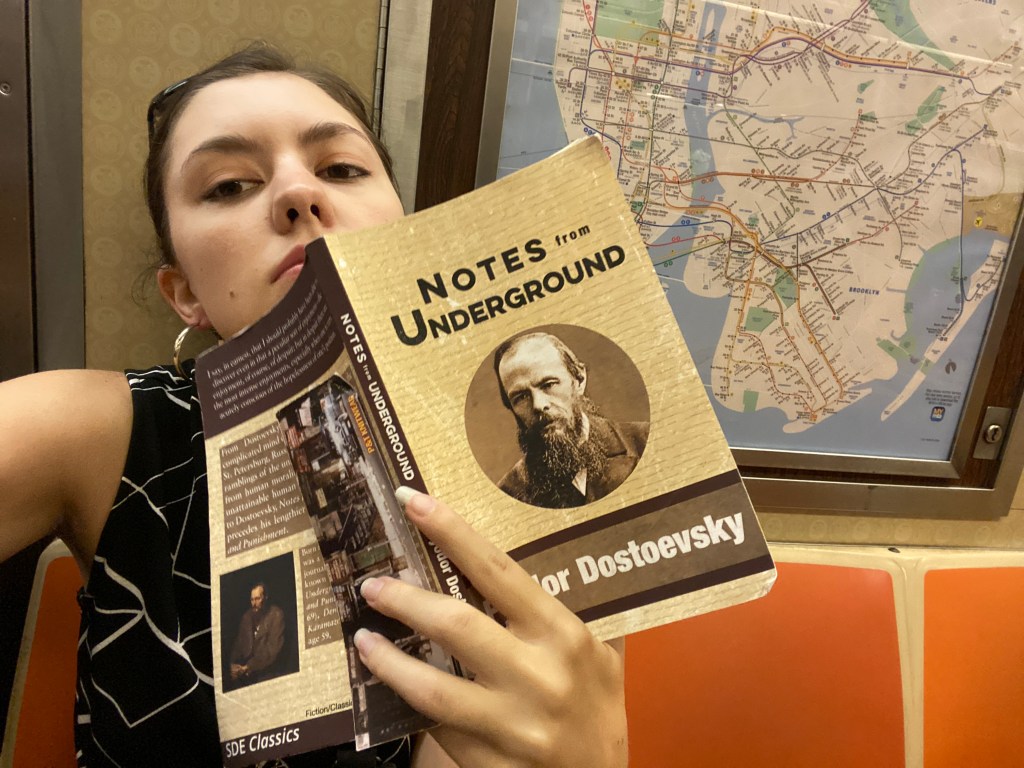
Cassandra at the Wedding by Dorothy Baker– I am at a loss for what to say about this one. She shows up to a wedding in a wedding dress, though, in her mind, not to stick it to the bride, her sister, and I’d have loved to have been a fly on the wall at this fictitious wedding.

A Personal Matter by Kenzaburo Oe– Is a dark story about a man whose baby is born with a disability, causing him to hope that the baby will die shortly thereafter. The story is the man waiting, hoping, and at times taking measures to bring about the death of his baby. Needless to say, this is not a warm and fuzzy book, but it has a positive ending. Skip if you’re squeamish.

The Passion According to G.H. by Clarice Lispector– If you are a no-plot-just-vibes girly then I cannot recommend this book to you enough. A woman stops to ponder the universe after seeing a cockroach roaming around the floor of her house. The addressee is a moving target and she describes crushing a cockroach and then having a paste come out of it like it’s Bavarian Cream.

Wuthering Heights by Emily Bronte– It’s hard to find something new to say about Wuthering Heights, but it is a moody, twisty novel that’s too classic not to read. Yes, it bored me to tears at times, since I am a twenty two year old woman in her prime and being holed up in my room reading books like Wuthering Heights can drain from that, but it was still worth the read.

The Crow Valley Karaoke Championships by Ali Bryan– This book was fun and if you’ve ever lived in a small town or a close-knit community then you’ll definitely find it fun as well. In Crow Valley, a town struck by recent tragedy, petty rivalries and gossip mills are a thing of legend. A man escapes from prison and a town convenes for an annual karaoke championship. Madness ensues.
Through the Groves by Anne Hull– A memoir about being gay and a woman in the south in the 60s. Pulitzer-prize winning journalist, Anne Hull, recalls what it was like to grow up on her father’s orange groves in Central Florida while the area was being cleared out for Disney World.
Ride A Cockhorse by Raymond Kennedy– Believe it or not, this book, with this name, is a metaphor for tyranny, told through the lens of a woman rising through the ranks at her local bank in the 1980s. Kennedy pulls out all of the stops when depicting a despot: control of the media, promoting inconsequential people to positions of power, gaining loyalty from workers, and discrediting and removing opponents from power. Mrs. Fitzgibbons, lean and hungry in her quest for power, works her way up through the chain of command at her local bank, being as machiavellian as they come. It is, however, a very lackluster commentary on abuse of power, barely clearing the very low bar that is Sally Rooney’s, “Capitalism is bad, let’s have sex” model of critiquing capitalism. The fact that it is satire only minimally softens the blow. Just read Animal Farm instead.

Lost Illusions by Honore De Balzac– Is a story about a city treating a young aspiring writer poorly. I have never read a book that was so boring and interesting at the same time. I did in fact have to read about the history of France through the history of the printing press, as well as about ten other ways to tell the history of France, but meanwhile people were dying so it’s cool. It’s 700 pages, so decide how cool you’d find that before trying to conquer it like I did.

The Days of Abandonment by Elena Ferrante– A man leaves his wife for a younger woman and now she has to raise the kids and the dog on her own. It is a tale as old as time, told in a way that is completely fresh. The reader gets to enjoy the ways in which the shit hits the fan within just a few days.

The Loser by Thomas Bernhard– is rambling and meandering in a way that feels like a vanity project for the author. The narrator’s circular thinking is a perfect example of how to write a mentally ill character that almost permanently resides in their own head space.

What Was She Thinking? Notes on a Scandal by Zoe Heller– A modern-day classic and well-deserved. I devoured this book within a few hours, unable to put it down. The novel, now famous, tells the story of a high school teacher having an affair with one of her students, culminating in a massive media scandal and the destruction of her marriage. What was she thinking, indeed?
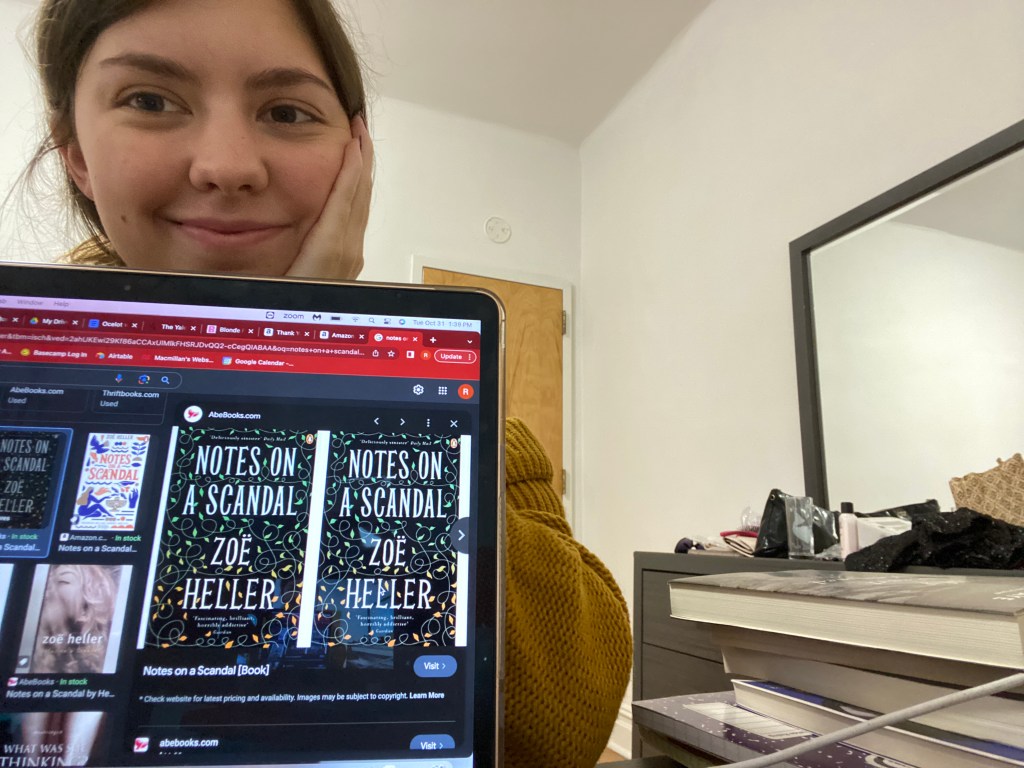
City People by Elizabeth Topp– Elizabeth Topp takes New York life from idyllic to cut-throat in a New York minute in her latest novel, City People. The time and place is modern-day New York City. The setting is the cut-throat, best-foot-forward application process of an exclusive, overpriced private school for Kindergarteners. City People is the story of a Klonopin-addled, Moncler-clad group of moms, all vying for their children to be accepted into Kent, an elite private school. Taking place in the days following their friend’s death, each woman copes in their own way, all the while lean and hungry in their pursuit of a spot for their child at the highly-coveted Kent school. Like a fever-dream of the rich and connected, Kent is the pipeline for whatever life their kids want and every mother knows it. A born-and-bred New Yorker, Topp gives us pitch-perfect New York City commentary, showing us the New York City of our collective dreams and simultaneous nightmares. She captures a raw image of what it takes to be elite, through lives dictated by real estate decisions, brag-worthy job promotions, designer brands, and promising school prospects. City People makes a spectacle of the types of people we all know, told in true New York City fashion, against the backdrop of a transit strike.
My Heart Hemmed In by Marie NDiaye– I read this book for my “Unhinged Narrators” class and there’s something about reading a book about an unhinged person at four am in the morning that’ll make them sound pretty hinged. When the human woman gave birth to an animal, all I could think was, “who among us hasn’t felt the urge to do that?” This book, with its frenzied ending and strange antics didn’t faze me much in the middle of the night, though I still was able to get caught up in the strangeness of this woman’s place in French society.
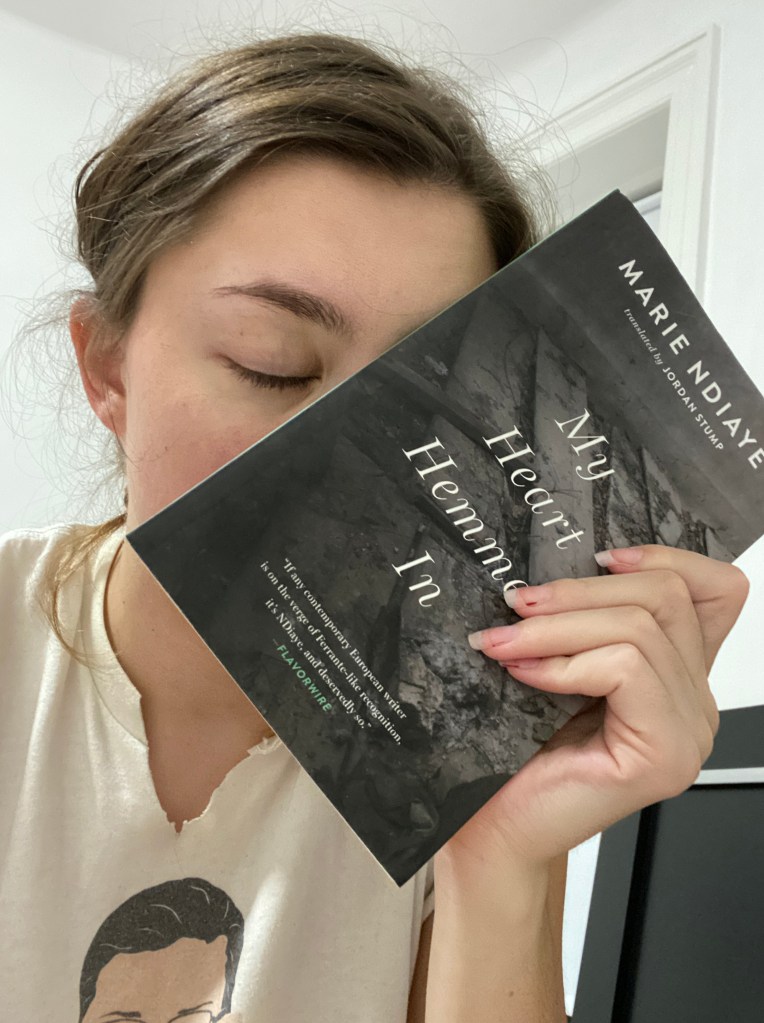
Lord Jim by Joseph Conrad– This book is all about ambiguity, which makes me feel better since I didn’t follow it very well as I was reading it. I did however always love his beautiful descriptions of the “shimmering water” on the horizon.
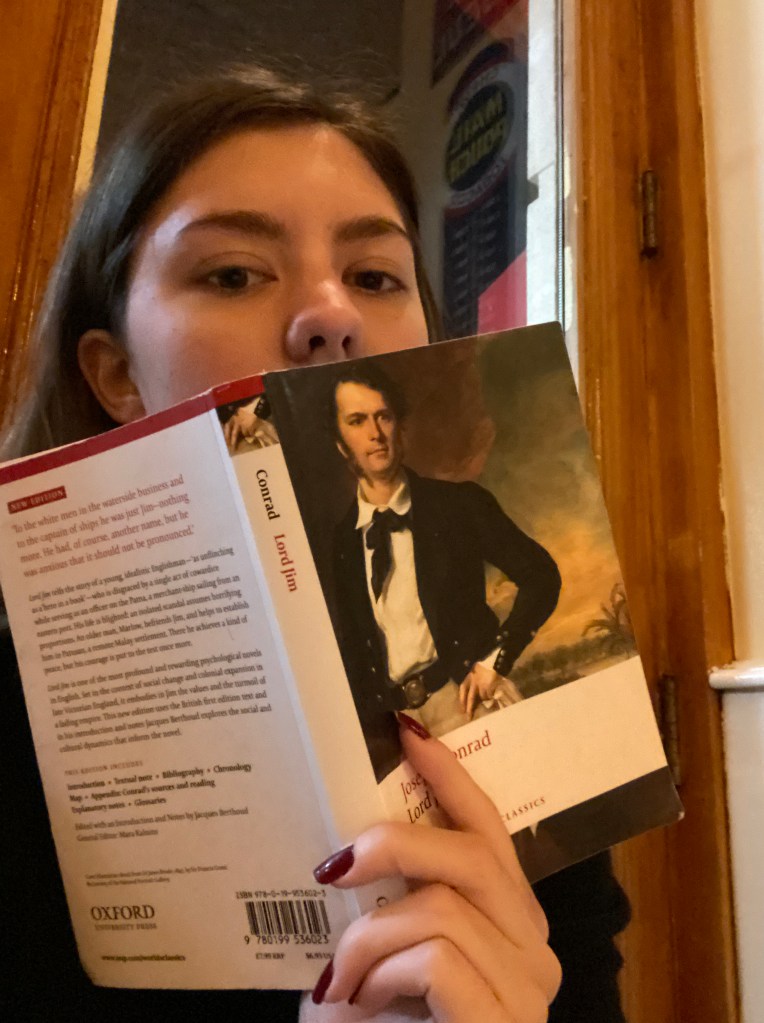
Assembly by Natasha Brown– In many ways, Natasha Brown writes the way that I would like to write: with clarity and trimmed of its fat. There is drama in every line. In this novel, she emphasizes the dehumanization of assimilation as a black British woman and her relationship with her privileged boyfriend. It is a quick read at about 102 pages.
Other People’s Clothes by Calla Henkel– While studying abroad in Berlin, two American girls feel that they are being spied on by the author they rented their apartment from and decide to throw elaborate parties to mess with her, predictably getting out of hand. The novel makes frequent references to Amanda Knox, the clear inspiration for this story about an American girl who studies abroad in Europe and winds up with a dead roommate. Nearly every sentence contained two complete sentences, conjoined with a comma, not a semicolon or a conjunction, making me feel school-marmish every time I tutted my disapproval at the improper sentence structure. I loved the plot twist at the end of the story, but felt that it took the novel too long to fulfill its promise of drugs and sex parties and Berlin nightlife. Do with that what you will.
Magma by Thora Hjorleifsdottir– (TW: Self-harm, suicidal ideation, and sexual assault) You might need to read a nice rom com after this one. I felt the urge to curl up in the fetal position and swear off men– a reasonable reaction to those who’ve read it. This book is quick– easily read in about two hours– which is good since you find yourself not wanting to stay long with the narrator’s misery.
And last, but certainly not least…
The Netanyahus: An Account of a Minor and Ultimately Even Negligible Episode in the History of a Very Famous Family by Joshua Cohen– Here I will offer the disclaimer that I am extremely biased towards this book because my professor won a Pulitzer for it in 2022. The Netanyahus is historical fiction, taking place in the 1950s, about the only Jewish American professor at a fictitious university who is therefore expected to host the Netanyahu family at his house while the patriarch, Benzion Netanyahu, interviews for a position at the university. A prepubescent Benjamin Netenyahu appears in the story, making it mild-to-moderately apropos. As I told my professor, “Judy was my favorite character, but that might just be because she was the teenage girl character and therefore is always the one I relate to. Throughout the book, I was hoping that there would be a happy ending that was, in part, about how his wife would start having sex with him again, because I was getting sad each time he was rejected. I was rooting for him. I know that I am not the target audience for this book, but your writing is very fluid and your lexicon is stupidly impressive.”
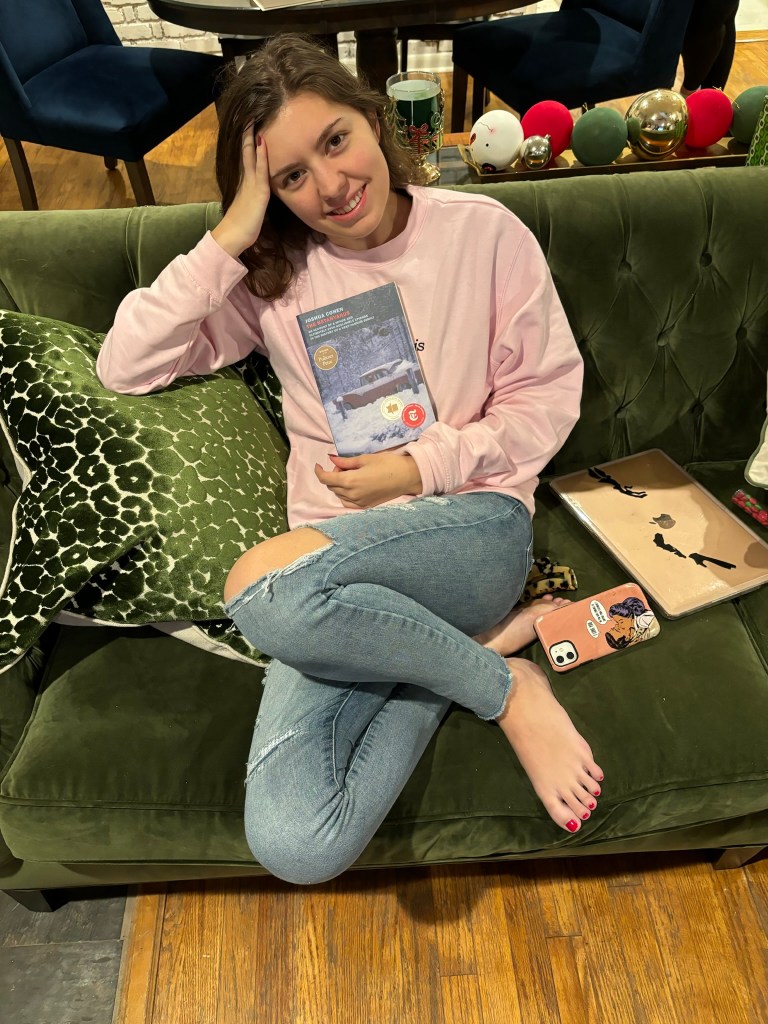
In summary and in summation:
Looking back, I see that there were a few common themes tying these books together. Women and their bodies played a significant role in the stories that I consumed. Books like My Body, The Girls, The Vegetarian, Detransition, Baby!, and The Poet X gave crystal-clear insights into how women perceive their own bodies and what they mean in the broader context of the world.
Other books focus on young girls in predatory situations, such as My Dark Vanessa and My Last Innocent Year.
Some were portraits in grief, specifically the deaths of mothers, like in I’m Glad My Mom Died and Crying in H Mart.
I’ve read more memoirs this year than I ever have in my life. Memoirs are, generally speaking, not my thing. I have always had a love affair with fiction, but this year I read My Body, Crying in H Mart, I’m Glad My Mom Died, Through the Groves, Hysterical, and Everybody’s Favorite: Tales From the World’s Worst Perfectionist, every one of them a female-centric memoir.
Freud would have a field day with my reading list of dead mothers, female bodies, and loss of female innocence, but Freud didn’t understand women so who cares.
My top three favorites were:
I’m Glad My Mom Died by Jennette McCurdy
What Was She Thinking? Notes on a Scandal by Zoe Heller
The Netanyahus: An Account of a Minor and Ultimately Even Negligible Episode in the History of a Very Famous Family by Joshua Cohen
Hopefully, you’ve found a book rec or two that piqued your interest.
Have you read any of these books? If so, what did you think? Please share your thoughts, politely, in the comments.
Happy reading!
The Tragic Queen,
Raquel

P.S.: Read my 2022 review of books here.


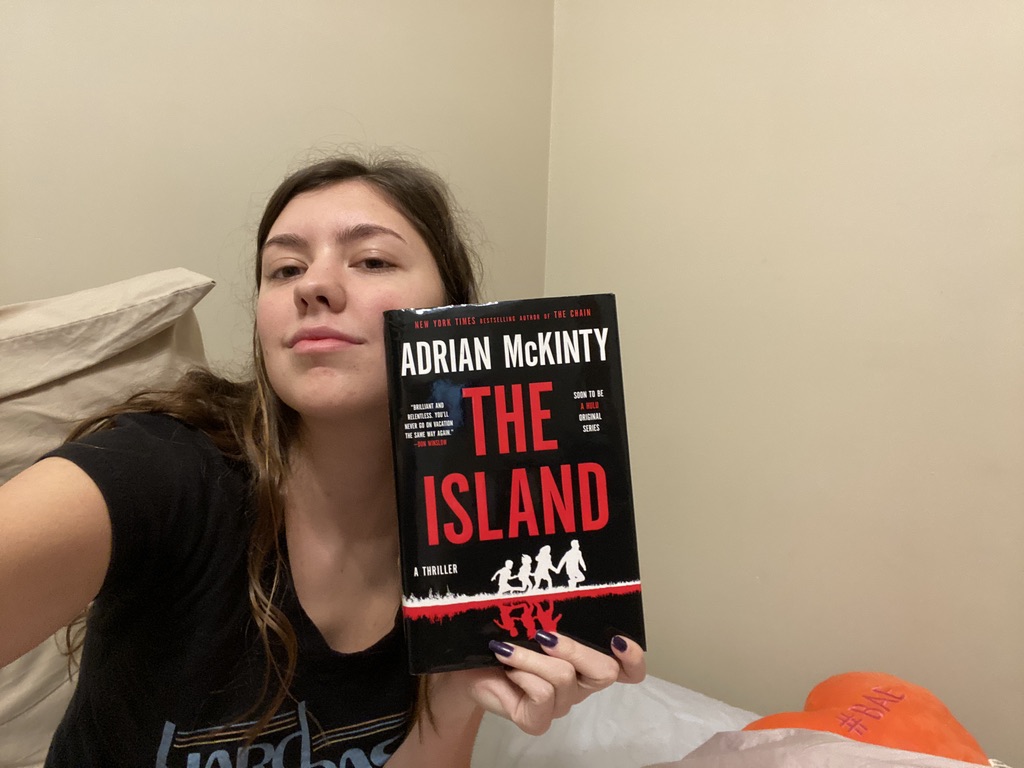
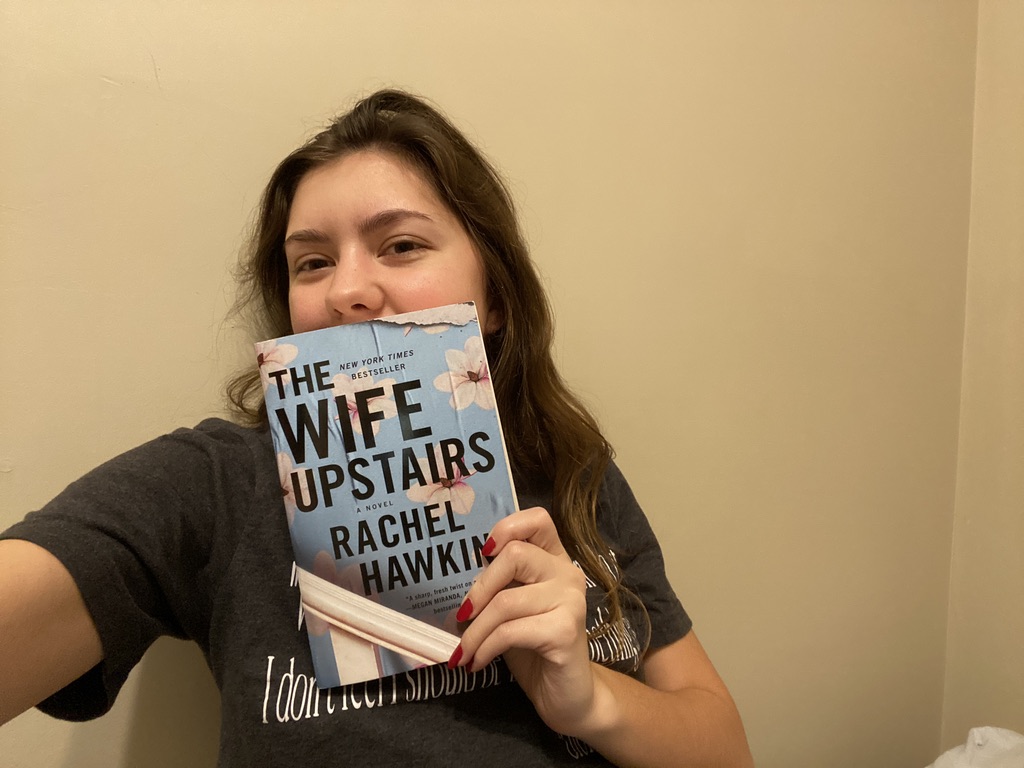

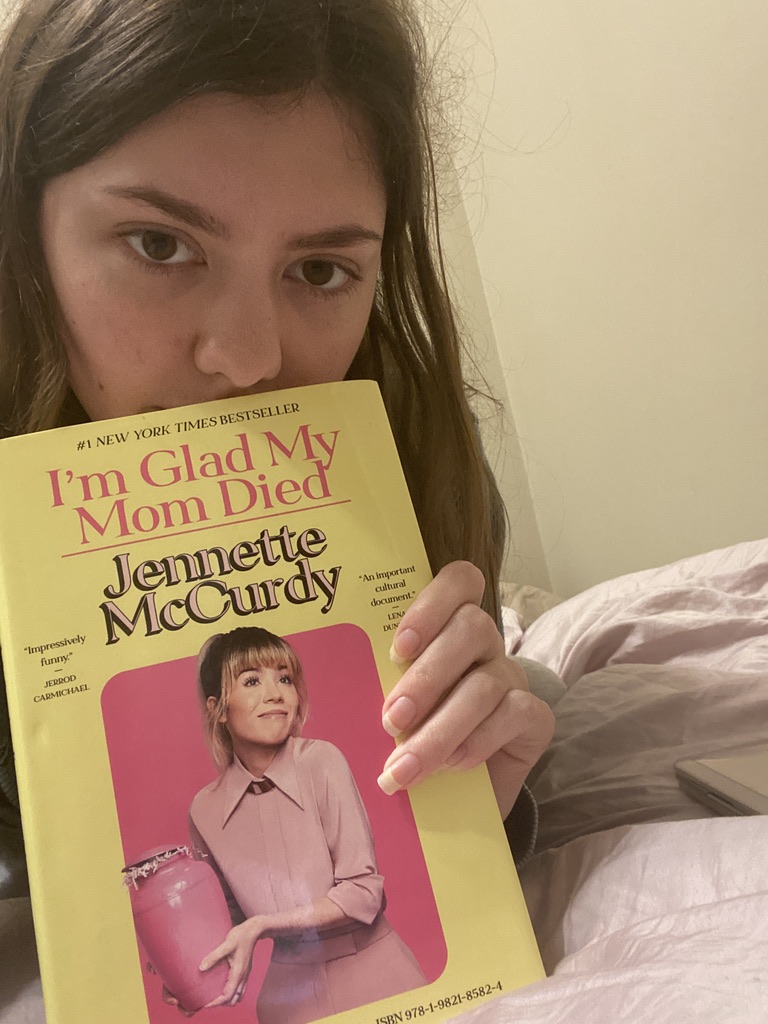


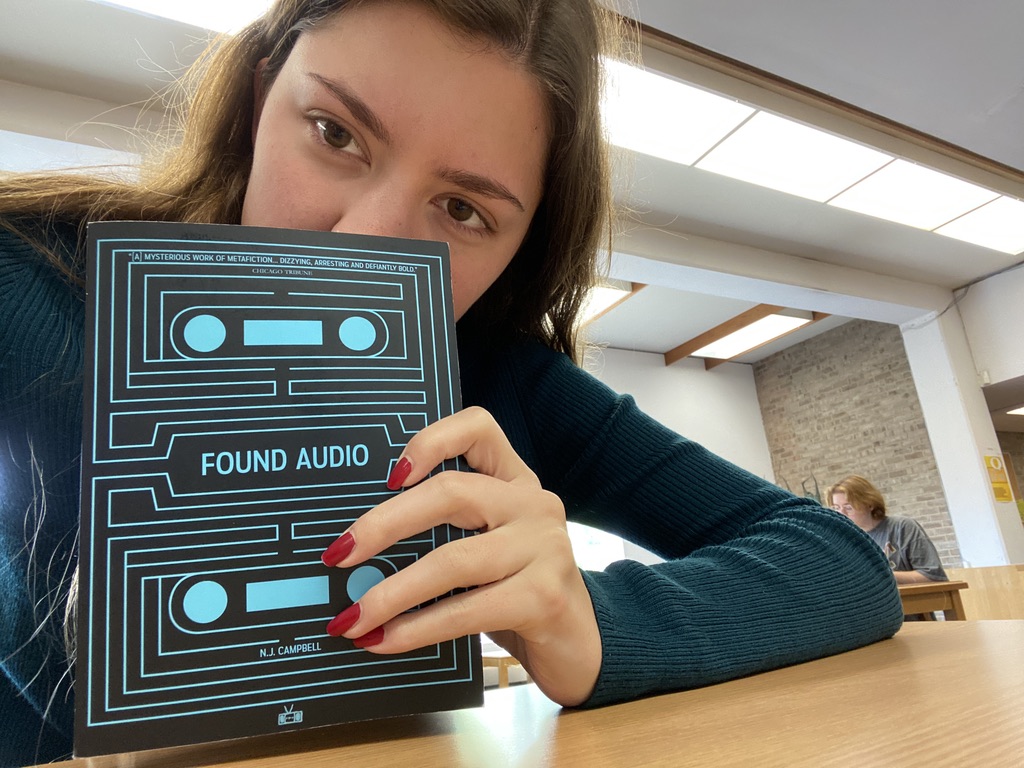


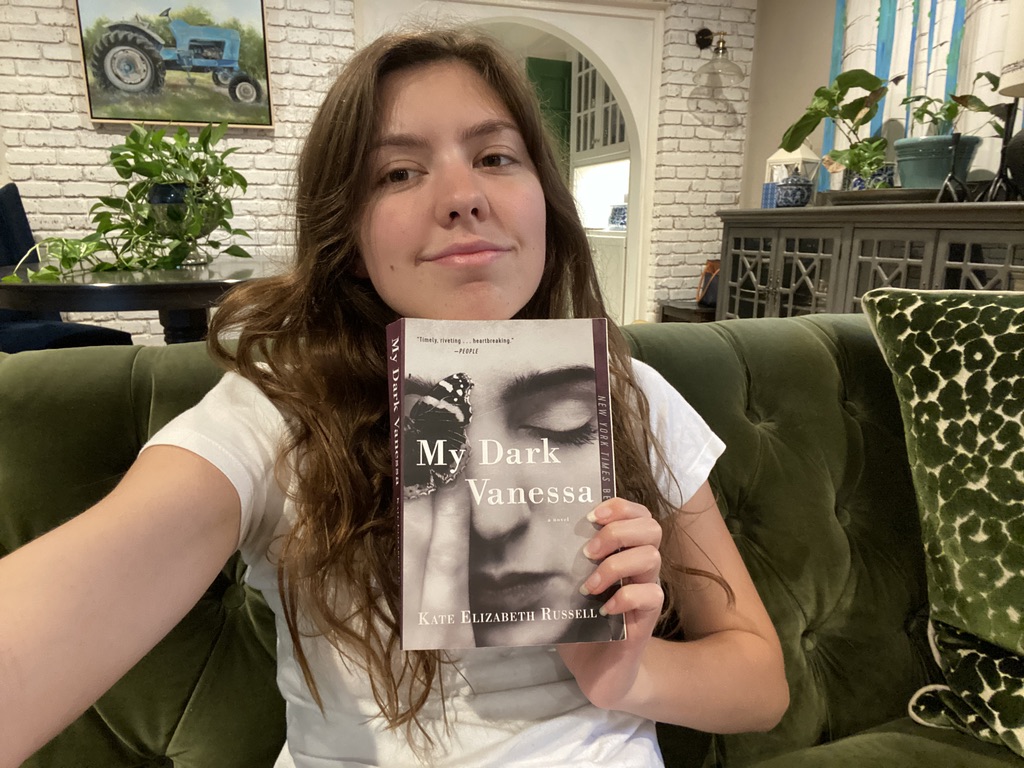



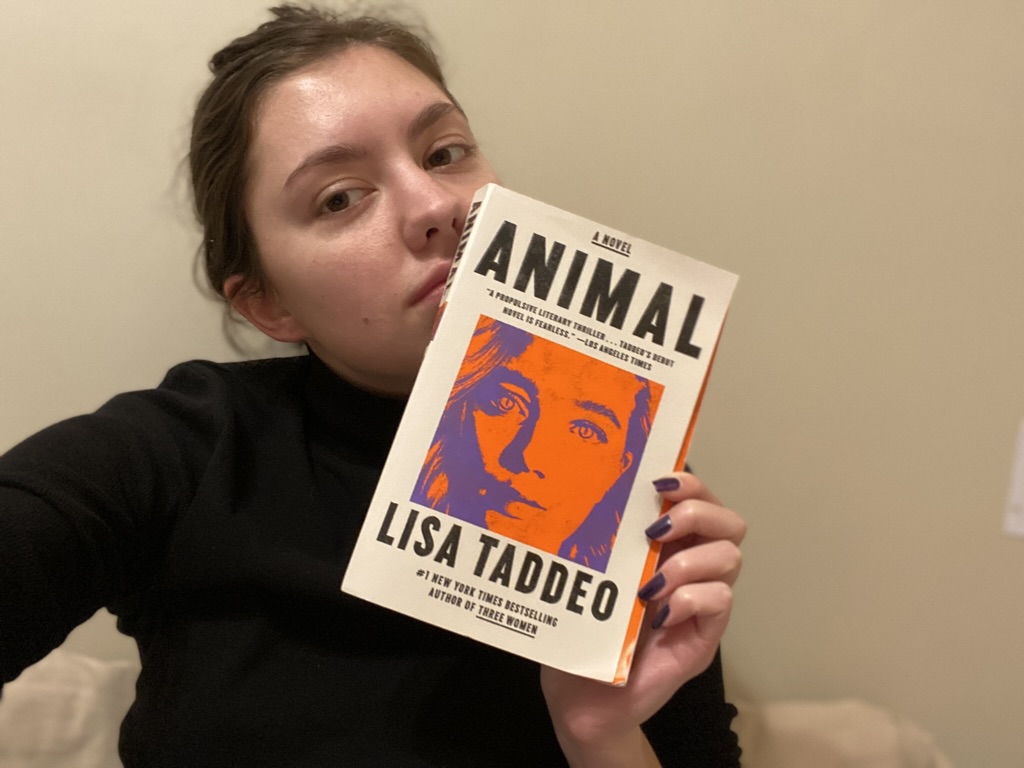





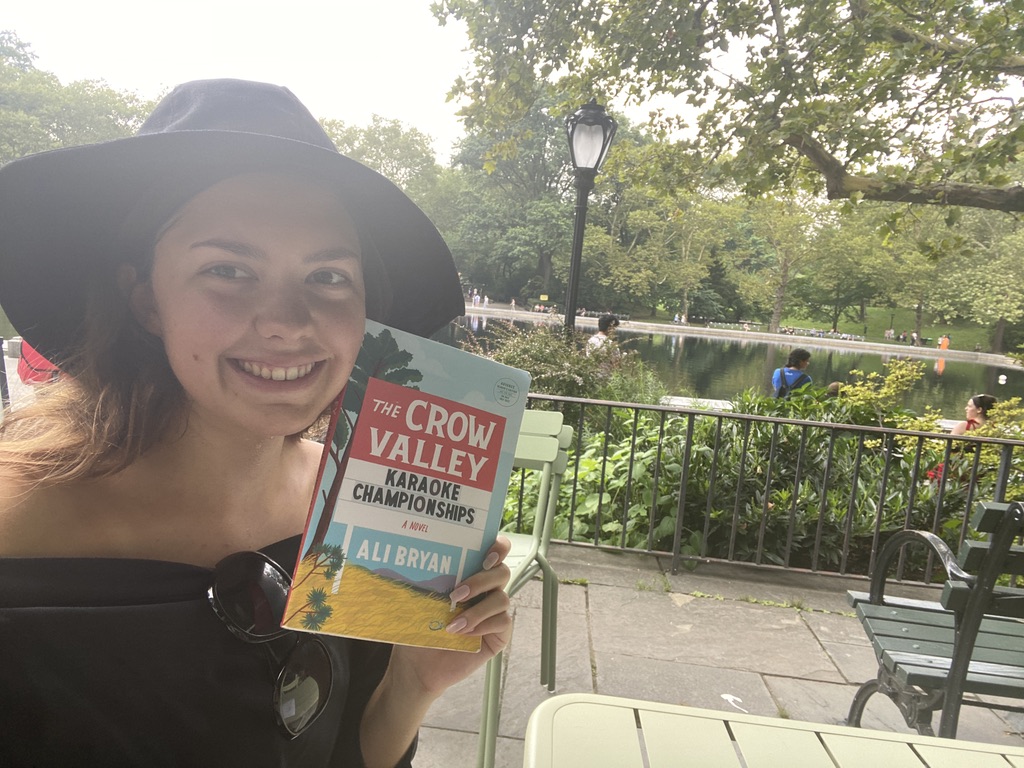

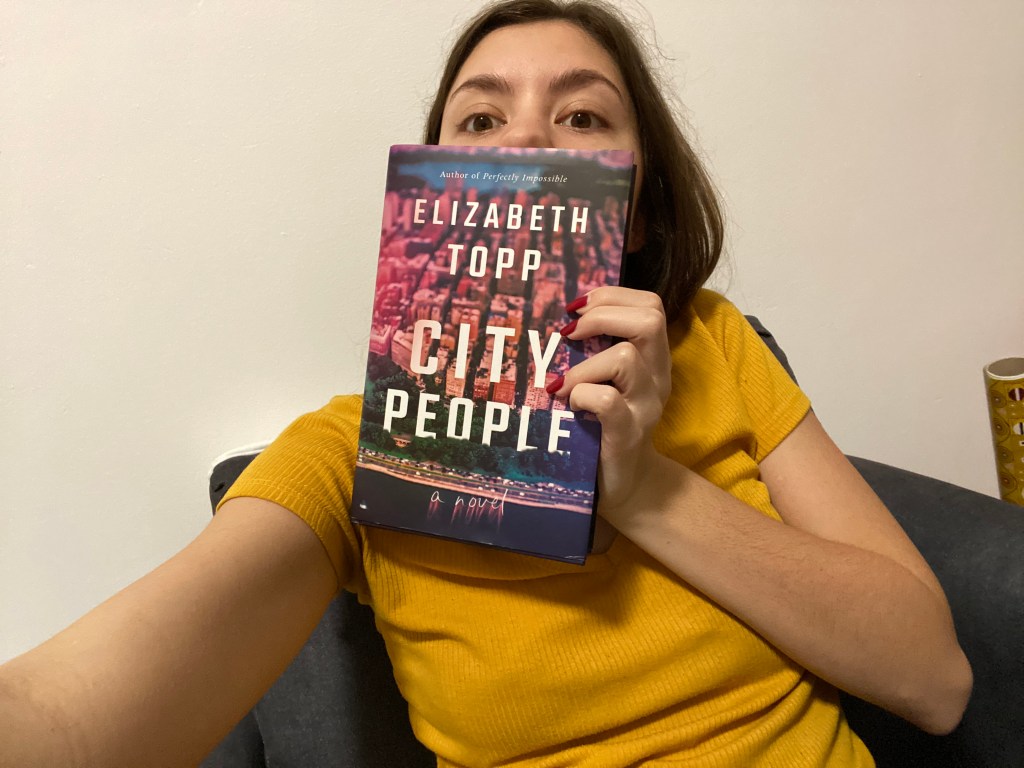




I also loved Notes on a Scandal. I was so glad to read I’m Glad my Mom Died- it was a tough read but so important.
LikeLike